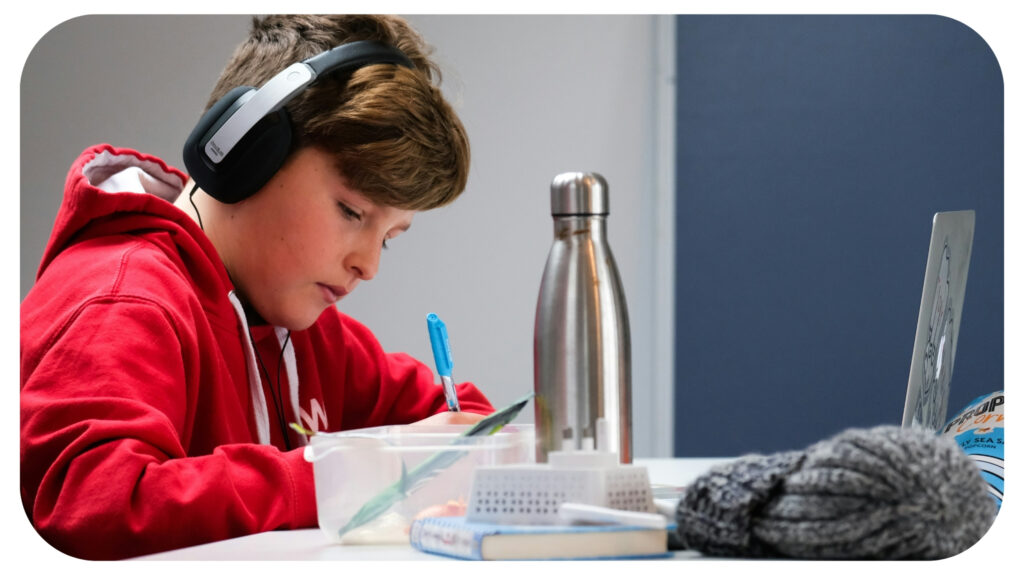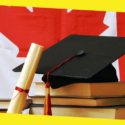Focus & Fun: Brain Balance Strategies for Kids to Enhance Schoolwork Engagement
This post was last updated on January 9th, 2025

Photo by Compare Fibre on Unsplash
Striking the right balance between focus and fun has become a significant challenge for many kids today. With academic expectations on the rise and distractions everywhere, even the most dedicated students can find it tough to stay engaged. The struggle to focus not only impacts their grades but can also dampen their enthusiasm for learning.
Leaders from Brain Balance explore practical strategies to boost schoolwork engagement for children. By addressing common hurdles, parents and educators can help children rediscover joy in their studies. Readers will uncover methods to make learning both effective and engaging, combining discipline with creativity.
Understanding the Power of Focus in Learning
In a world filled with distractions, teaching children the art of focus can seem like a monumental task. However, the ability to concentrate profoundly impacts a child’s educational journey. A strong sense of focus is not only fundamental to absorbing information but also essential in fostering a positive learning experience. This section delves into the tangible benefits of focus and how it can be nurtured as a valuable skill.
“When children learn to concentrate, they tap into a reservoir of cognitive benefits that can profoundly affect their academic experiences,” says Dr. Rebecca Jackson. “Enhanced focus allows for better information retention, making it easier for children to recall facts and concepts during exams and assignments.”
Improvement in memory retention directly correlates with stronger academic performance, giving students the confidence to tackle more challenging subjects. Beyond memory, focus plays a crucial role in a child’s self-esteem. With improved focus, children experience fewer mistakes and greater ease in completing tasks, which boosts their confidence and motivation. They begin to perceive learning as a manageable and rewarding endeavor rather than a daunting challenge.
Contrary to the belief that some children naturally have it while others don’t, focus is a skill that can be cultivated. Like any skill, it requires practice and an understanding of effective strategies. Helping children develop focus involves guiding them through exercises that enhance their attention span, much like training a muscle to become stronger over time.
Practical techniques, such as setting specific goals or breaking tasks into smaller, manageable pieces, can significantly improve a child’s ability to concentrate. Encouraging regular breaks to refresh the mind and maintaining a distraction-free study environment are also pivotal in nurturing focus. Much like a gardener tending to a delicate plant, with patience and persistence, parents and educators can help children develop the robust focus they need for academic success.
Strategies to Prepare for Effective Study
Preparing effectively for study sessions involves fostering an environment and lifestyle that supports learning and concentration. There are essential strategies that combine physical well-being, environment setup, and lifestyle choices to enhance kids’ schoolwork engagement. Sleep serves as the foundation of cognitive function and memory. When children receive adequate rest, it allows their brains to process and consolidate information learned during the day.
A routine that prioritizes quality sleep can significantly improve their focus and problem-solving skills. It’s not merely about the hours spent sleeping but achieving deep, restful sleep that rejuvenates both the mind and body. For kids, maintaining consistent sleep patterns can bolster their ability to engage fully in their studies.
Notes Dr. Rebecca Jackson, “Nourishment plays a pivotal role in maintaining concentration and energy during study sessions. Offering children healthy snacks such as fruits, nuts, and whole grains can fuel their brains with the nutrients needed for optimal function.”
Healthy foods provide a steady release of energy, keeping children alert and focused longer. Parents might consider incorporating Omega-3-rich foods like fish or flaxseed, known for boosting brain power, into their meals, ensuring that nutrition directly supports concentration and cognitive abilities.
Physical activity directly correlates with improved cognitive function and focus. Exercise increases blood flow to the brain, which sharpens thinking and enhances mental alertness. Children who engage in regular physical activity often experience better memory retention and faster information processing. Activities can be simple and enjoyable, like a family walk after dinner or playing a sport.
Proven Techniques for Maintaining Concentration
Incorporating both focus and enjoyment in learning can help kids perform better in school. By understanding personal learning styles, setting consistent routines, taking breaks effectively, and introducing rewards, children can enhance their concentration and make studying more engaging.
Recognizing how a child learns best can dramatically improve their study effectiveness. Each child might resonate with different techniques: some may prefer hands-on activities, while others benefit more from visual aids or auditory instructions. When kids understand whether they are visual, auditory, or kinesthetic learners, they can modify their study approach accordingly. This might mean using flashcards, listening to study materials, or engaging in experiments.
Routine is a cornerstone of effective learning. A predictable study schedule helps cement focus and minimize distractions. When children know what to expect, they can mentally prepare for the task ahead. A structured routine not only sets clear boundaries between work and play but also encourages discipline and responsibility.
Breaks are essential to maintaining long-term focus. However, not all breaks are created equal. Instead of turning to screens or passive activities, children should be encouraged to engage in short, refreshing activities. This could be stretching, quick outdoor games, or even a brief nap. These activities rejuvenate the mind and improve concentration when they return to their studies.
Incentives can be a powerful tool for motivation. Establishing a reward system gives children something to look forward to after accomplishing tasks, making the learning process rewarding rather than burdensome. Rewards can range from small treats to extra playtime or choosing a weekend activity. By aligning rewards with study goals, children learn to associate hard work with positive outcomes, which encourages a strong focus and a sense of achievement.
Optimizing Brain Function for Learning
Engaging children in schoolwork requires more than just access to educational materials. A well-functioning brain serves as the backbone of effective learning, where attention and memory play crucial roles. Recognizing cognitive hurdles and addressing them ensures that each child can reach their full potential.
Attention and working memory are at the core of the learning process. Strong attention helps children absorb details, follow instructions, and engage actively with their studies. Meanwhile, a robust working memory allows them to shuttle information back and forth—whether when solving math problems or forming arguments in essays. Children face various cognitive barriers that can impede learning. Some may struggle with attention disorders that make focusing a herculean task, while others encounter working memory limitations that cause information to slip away like sand through fingers.
Finding the right mix of focus and fun is the key to improving children’s engagement with schoolwork. The strategies outlined emphasize the unique contributions of both elements in creating an enriched learning environment. With a strong focus, children access deeper comprehension and improved memory retention, setting them up for greater academic success.
Fun, on the other hand, transforms learning into an enjoyable journey, sparking curiosity and intrinsic motivation. Encouraging kids to reflect on their progress helps them understand the value of these strategies. The journey forward is not just about achieving grades but igniting a lifelong appreciation for learning.
Recommended For You
Education 101: 5 Steps for Choosing the Right Degree Program
Most Inside
Most Inside offers high-quality recommendations and valuable updates to enhance all aspects of your life, providing premium guidance and enriching experiences.




